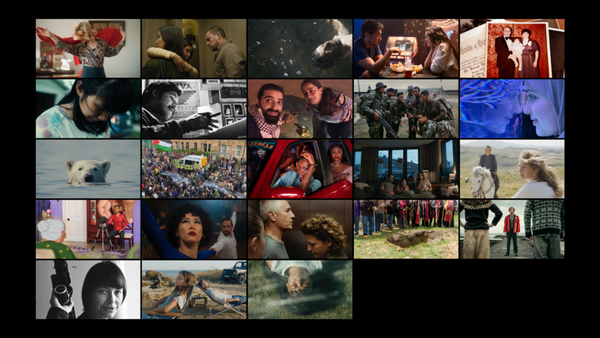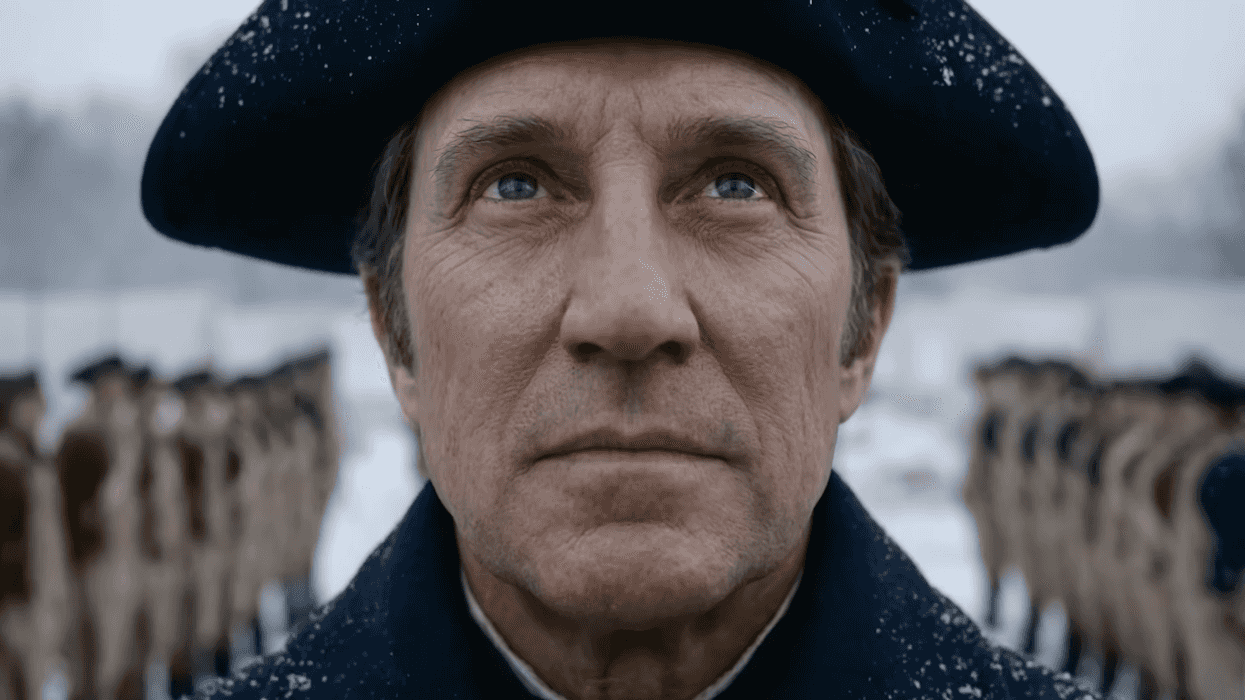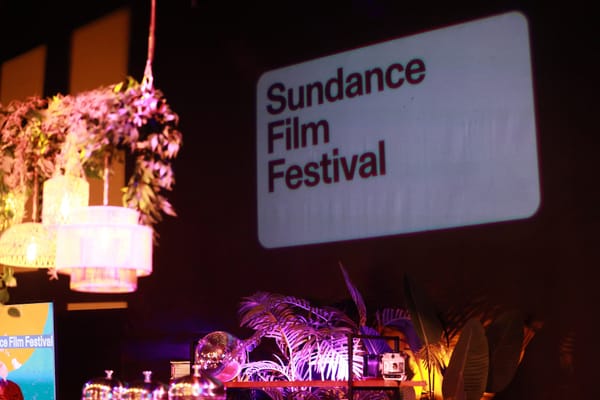Our 10 Favorite Movies from the 2025 Sundance Film Festival
David and Stephen David Miller discuss their favorite films from this year's Sundance.
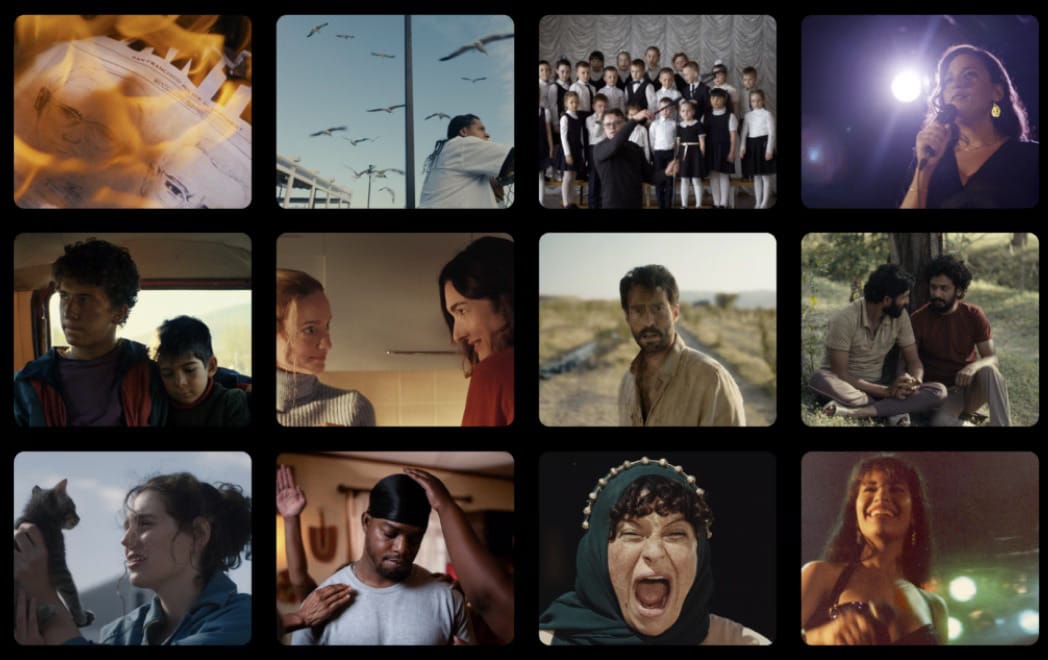
I didn’t make it out to Park City for the 2025 Sundance Film Festival, but I was thrilled to see that they continued to hold online screenings this year. It’s a wonderful option for those who can’t brave the trip out into the cold. I just wish the viewing window was slightly longer to enjoy more of what the festival has to offer.
Over the course of the last weekend, I was able to check out 13 films while Decoding Everything’s Festival Correspondent, , was able to watch 22 movies. Below, you’ll find a video conversation that I had with Stephen and his podcast co-host, Christopher Schnese (from The Spoiler Warning), where we discuss our 10 favorites. Then, Stephen and I share 10 of our favorites in written form (in alphabetical order):
BLKNWS: Terms & Conditions
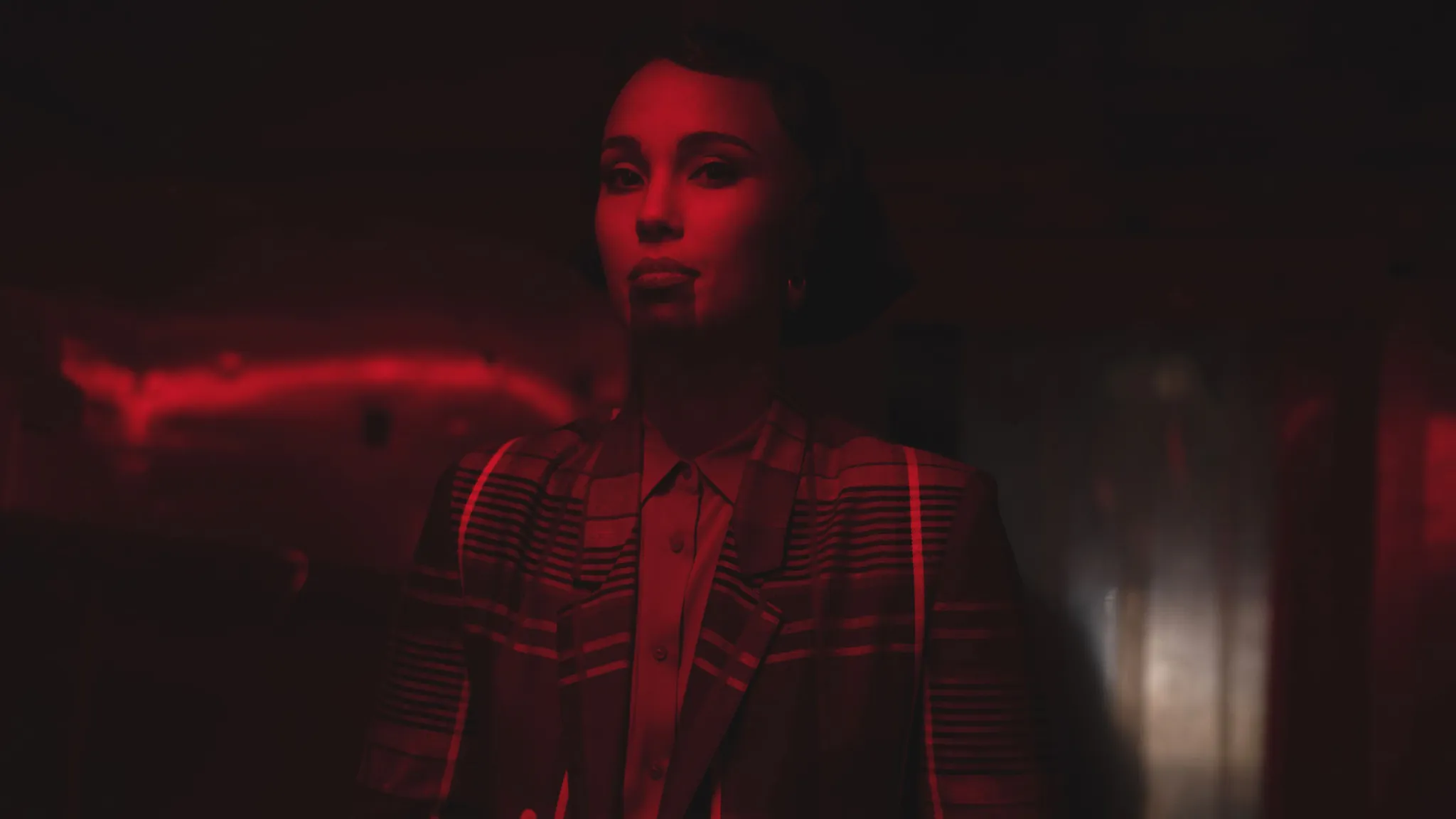
There’s no easy way to categorize BLKNWS: Terms & Conditions, and that lack of categorization is the point. Kahlil Joseph’s feature length follow-up to his experimental art installation, BLKNWS, functions less as a narrative than as a kaleidoscopic poem. To focus too much on the plot is to miss the forest for the trees, but roughly speaking there are three threads at play: past, present, and future. In the past, we track the life and work of W.E.B. Du Bois, the Black scholar who dreamed of creating a comprehensive volume about Africa and African-descended peoples, the Encyclopedia Africana. In the present, we see a version of that dream rendered as a visual collage: found footage in the form of newsreels and snippets of Hollywood films, which comment on and celebrate Black expression. In the future, or possibly in an Afrofuturistic present, we join a journalist on a cruise ship headed from the U.S. to Ghana, where she’s covering an exhibition called the Transatlantic Biennial. Don’t worry about the details; this is much easier felt than understood. What’s thrilling about Joseph’s film is its total blurring of borders: fact and fiction, history and present, intellectual heft and sharp irreverence. Cultural debates between real-world academics are interrupted by ads for a nonexistent news network. A character in a 1962 classic by Jean-Luc Godard leafs through Wu-Tang Clan records and muses about reparations. It may seem disjointed, but it’s colliding to a rhythm, resulting in a wholly unique, free-associative experience. Succumb to it and see where it carries you. -Stephen David Miller
Should you watch it? Yes, if you’re open to immersive, experimental films without much of a literal plot
Brides

Nadia Fall’s Brides belongs to a niche genre I adore. Let’s call it Portrait Of A Young Person Making Questionable Life Choices. Think American Honey, Didi, Mid90s—compassionate odes to a certain reckless abandon that make my inner teenager nod in silent recognition while the outer me screams “Please, talk to an adult!” The young people in question here are Doe (Ebada Hassan) and Muna (Safiyaa Ingar), high school friends who have set out on a mission. Doe is Somali, Muna’s family is from Pakistan, and both are fed up with the Islamophobia they experience at home in the U.K. That’s how they find themselves on a flight to Istanbul, the first leg in a quest to get to Syria. Inspired by flashy Instagram influencers and a handful of like-minded peers, they see their destination as a beacon of hope: a way of reclaiming their identity, being accepted as they are, and taking part in something greater than themselves. But the moment they land, their plan starts to fall apart. As we watch them scramble to pick up the pieces, we find our empathy pitted against our better judgment. The pair approach every new challenge like a game they’re delighted to be playing, and their optimism smooths over a slew of poor decisions. We’ve seen what they’re running away from and are rooting for some sort of escape. Yet there’s a pervasive sense of dread we can’t ignore. It’s an unsettling, politically resonant combination. -Stephen David Miller
Should you watch it? Yes, if you like movies that confuse your heart.
East of Wall
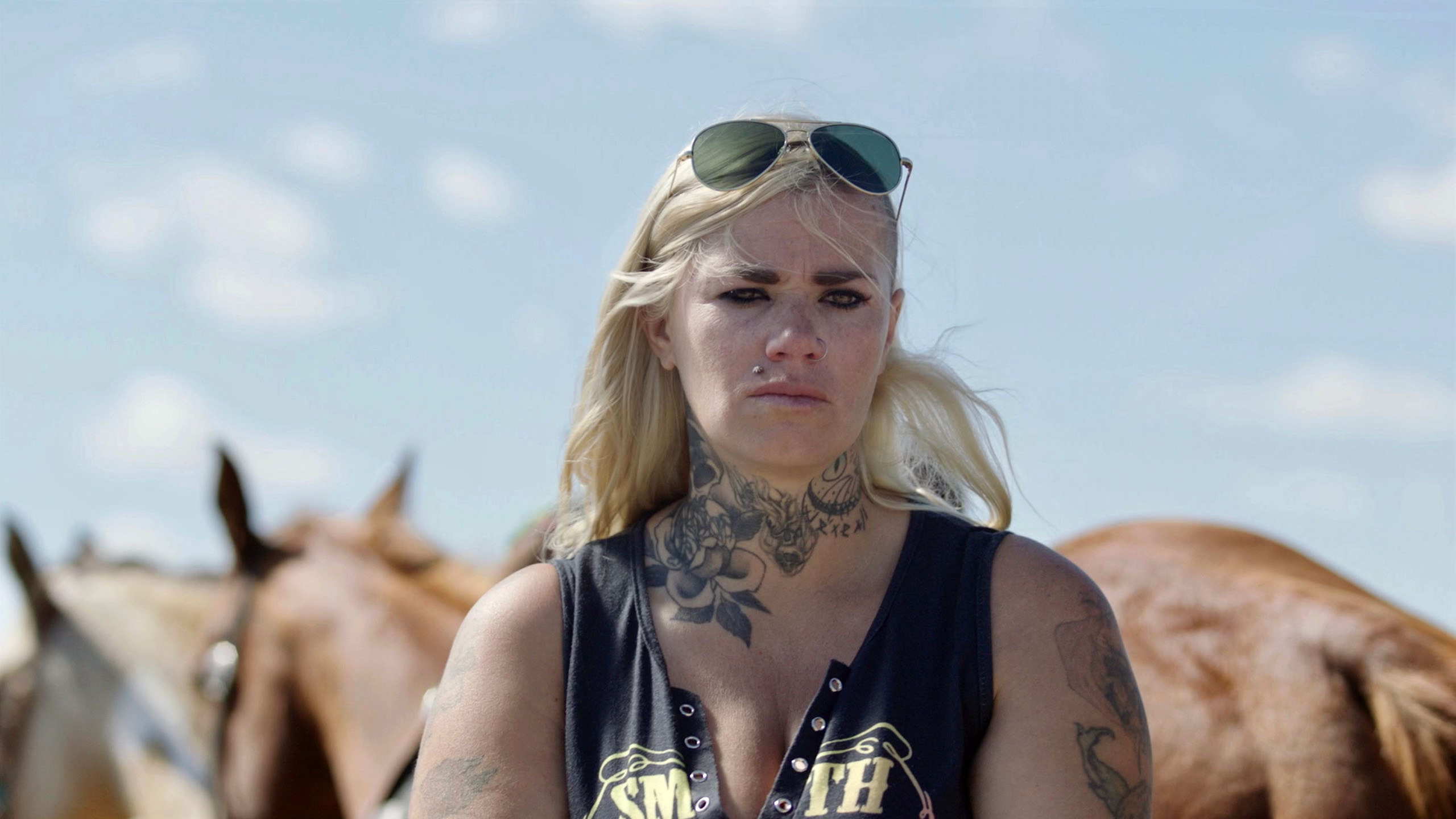
I don’t want to be too simplistic about it but East of Wall is this year’s The Rider. Like Chloé Zhao’s 2017 western, East of Wall is an ultra-naturalistic film featuring a protagonist who is actually good with horses in real life. In East of Wall, Tabatha Zimiga plays herself as a woman who’s raising a bunch of teenagers who’ve flocked to her from broken homes, all while trying to make a living taming and selling horses. It’s about the grit and determination it takes to carve your own path in the West.
East of Wall is a docu-drama hybrid featuring a lot of non-actors playing roles next to festival favorites like Scott McNairy and Jennifer Ehle. It also features breathtaking footage of real people riding real horses — a testament to the special bond people can have with these magnificent creatures. A quintessential Sundance film. -David Chen
Should you watch it? Yes, if you liked The Rider.
Omaha
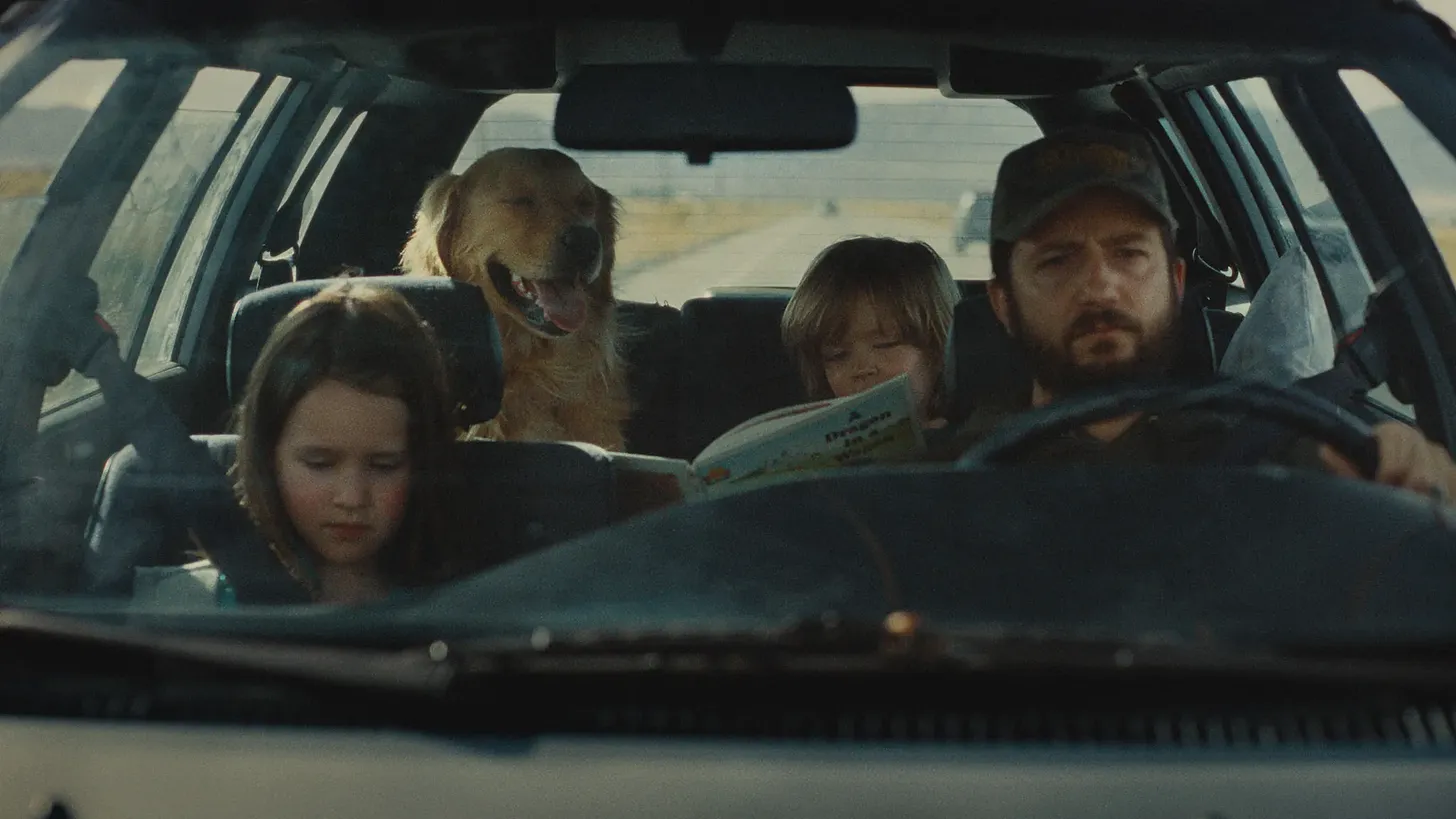
There’s an itch I’m always looking to scratch when I tune into Sundance: I want to cry. Not to have my heartstrings gently plucked by a keen observation; not for the room to get a little misty for a second. I’m talking ugly, profuse, cathartic tears while eating takeout in an unlit apartment. Nothing turned me into a puddle this year quite like Omaha. The first feature from director Cole Webley opens with a father (John Magaro) and his two young children (Molly Belle Wright and Wyatt Solis) as they load up their belongings in a car and set off for Nebraska. Where precisely they’re headed is kept intentionally vague, and we suspect even the dad isn’t certain. However unsteady he feels, though, he can’t let his traveling companions see it. People can struggle, but Daddy is a constant. On a 2 a.m. highway with nothing but lane marks ahead, fuzzy from rain and exhaustion, the greatest gift he can offer them is faith. A chance to sleep easy, knowing the ship has a captain. Magaro’s performance is infused with that cultivated confidence, and it’s a heartbreaking thing to behold. The young actors are also excellent, lending genuine pathos to a story that might otherwise have felt manipulative. Whether in searing shouting matches or silly, naturalistic asides, their chemistry as a family is undeniable. Even when the script veered into more heavy-handed, capital-I Important territory, I was too busy sobbing to be a critic. Whatever nitpicks I had took a back seat to my emotions. -Stephen David Miller
Should you watch it? Yes, especially if you haven’t had a good cry since the ending of Past Lives and need John Magaro to do you another solid.
The Perfect Neighbor
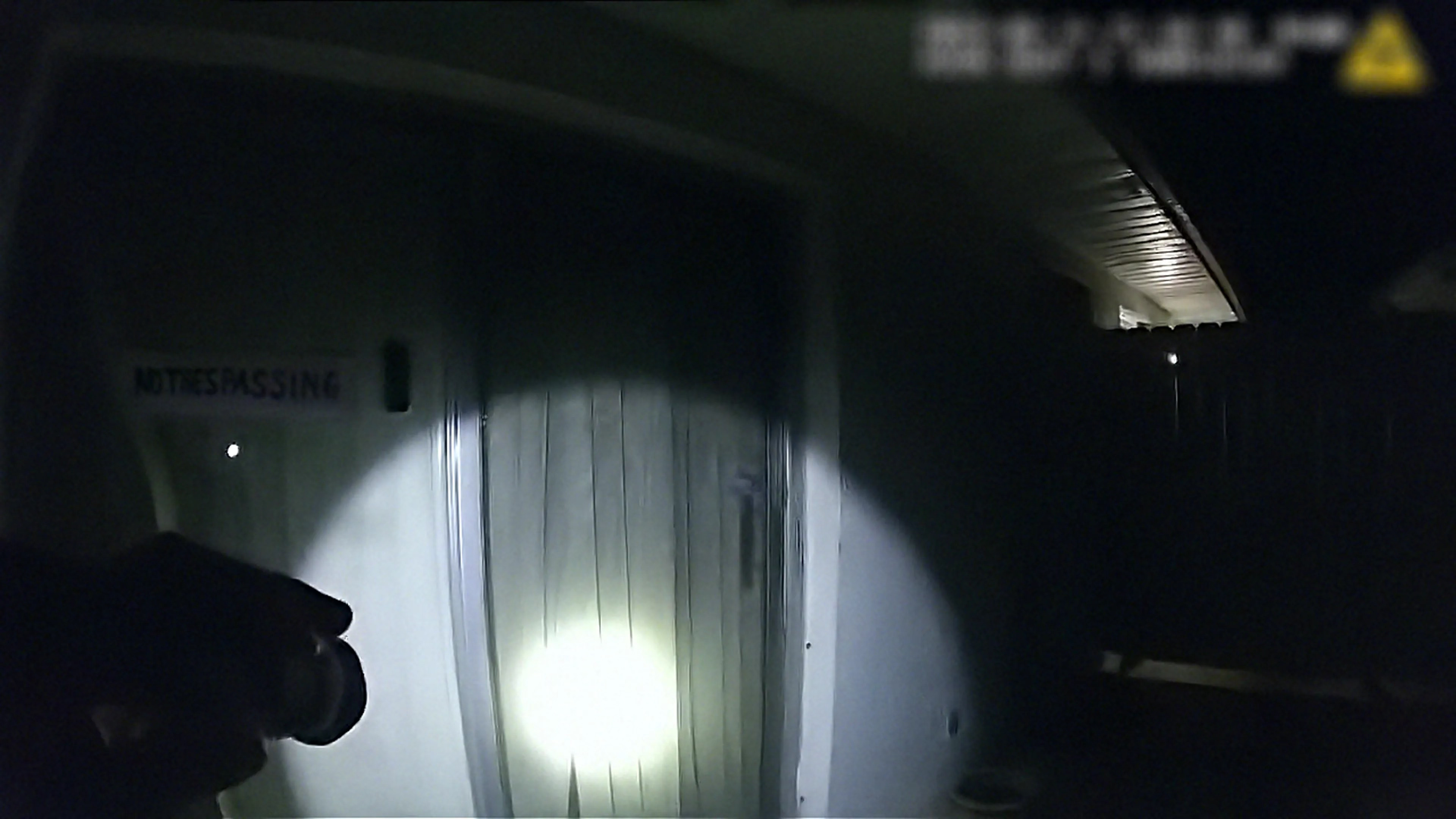
Made up almost entirely of police bodycam footage, The Perfect Neighbor is a strikingly effective and thoroughly engrossing documentary about what happens when neighbors seem set on a collision course against each other. One of the film’s strongest assets is how it conveys the passage of time. We witness an episode, then cut ahead months later to see how things have played out since. Meanwhile, there’s a dread that pervades these proceedings. You see how small disagreements begin festering and escalating over time. When things finally come to a head, the film serves as a reminder about how our actual laws can sometimes create injustice instead of preventing it. -David Chen
Should you watch it? Yes, if you want to get real angry about “stand your ground” laws.
Predators
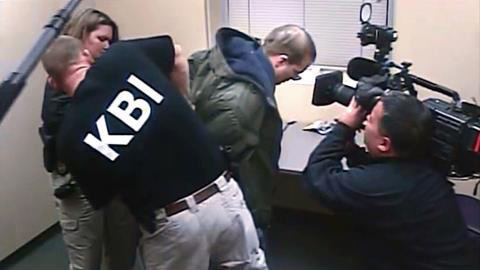
What was it about Chris Hansen’s To Catch a Predator that transfixed America? Why did people love seeing these (admittedly gross and skeevy men) annihilated on national television? David Osit’s Predators attempts to explore these challenging questions while turning the camera on himself and documenting his own lived experience as a viewer of these spectacles. Along the way, he tries to tackle the copycats that have sprung up in Predator’s wake and chats with Chris Hansen himself to try to find the meaning behind it all. To Catch a Predator may not be the phenomenon it used to be but what’s clear is that on some level, we live in the world of media and justice that the show helped to create. -David Chen
Should you watch it? Yes, if you are a fan/hater of To Catch a Predator.
Sabar Bonda (Cactus Pears)
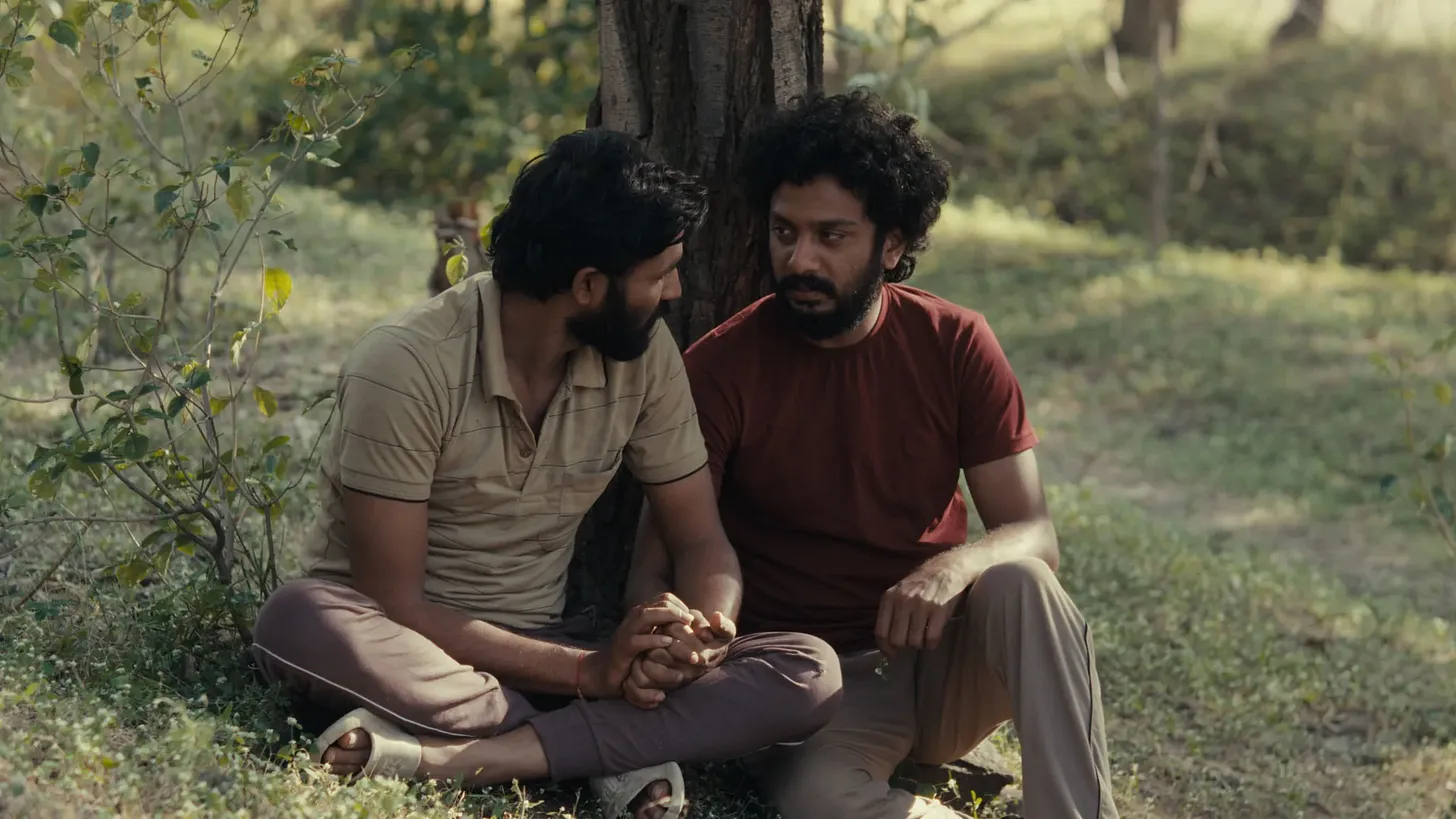
One joy of attending an international festival is the chance to peer into a life I have no access to. Films have this wonderful way of widening your perspective. My favorite example this year was Sabar Bonda (Cactus Pears), Rohan Kanawade’s tender, semi-autobiographical debut. The story follows Anand (Bhushaan Manoj), a queer man who travels from Mumbai to the rural homeland of his youth to grieve the unexpected death of his father. His sadness is solitary in nature, but it’s subsumed by communal expectations. As the only living son, he has duties throughout the ten-day mourning period, ones which tend to put him starkly on display. That spotlight makes him uneasy, as do his relatives’ constant questions about his marital status, which he can’t answer in any way that they’d accept. Instead, he finds solace in the only person who truly understands his situation: his childhood friend Balya (Suraaj Suman). What follows is an understated drama about existing between worlds, and the competing virtues of tradition and individual expression. There are layers of performance Anand must wear in his ceremonial role as a son—uncomplicated grief, heteronormative identity. However freely he’s put them on, they carry weight. It’s lovely to watch him sneak away and shed them. -Stephen David Miller
Should you watch it? Yes, if you’re patient and enjoy dramas that leave plenty of room to breathe.
Sorry, Baby
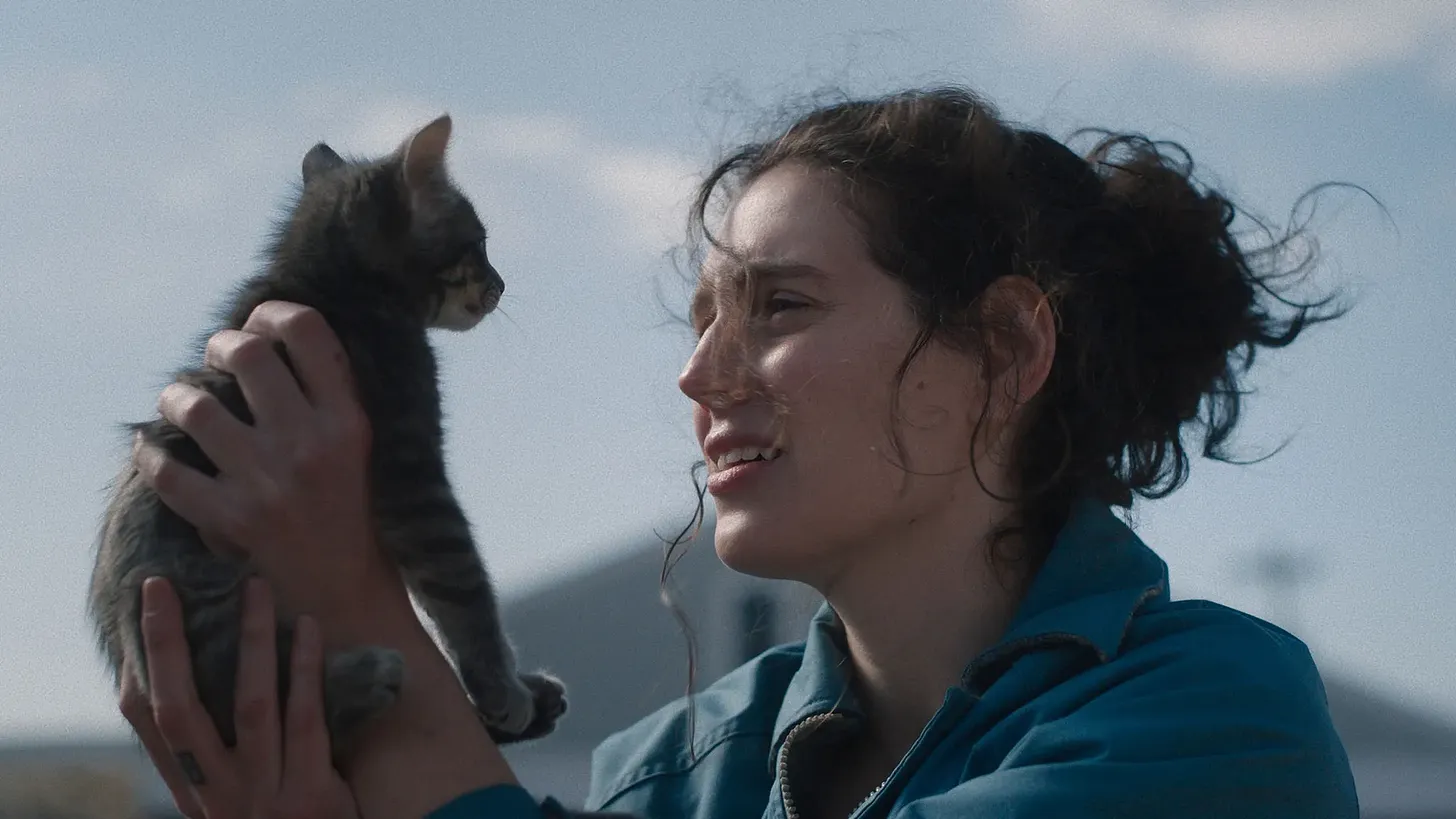
There’s a house style typical to Sundance debuts which I’d describe as “endearingly shaggy.” Even my favorites tend to have an unrefined quality, like a lo-fi punk anthem or a scrawled breakup poem. All voice, little perspective. But every once in a while, a first-time filmmaker will arrive on the scene with a vision that’s not only bold but fully baked. That’s what impresses me about Sorry, Baby, the breakout tragicomedy by writer-director Eva Victor. Victor stars as Agnes, a former grad student and current professor at a liberal arts college in New England. Agnes has a distinct personality which informs the rhythms of the film: warm but in a muted way, wryly observant, both sad and bemused at their own sadness. It’s a balancing act Victor maintains from both sides of the camera, and it’s crucial as the narrative develops. Presenting at first blush as a quirky character study, it deepens into a multifaceted exploration of trauma—the experience of living through it, how it feels to be labeled as Someone To Whom It Happened, and the absurdity of others’ floundering response. Like the Nabokov novel Agnes is teaching in class, there’s a conflict at play between the content and form of their story. Tragedy is mined for glimmers of humor, while mundanities feel surprisingly poignant. There’s something specific, strange, and true about the tension being explored here, and it makes for my single favorite film of the fest. -Stephen David Miller
Should you watch it? Yes, especially if you loved Tig Notaro’s “Live” or have a penchant for finding comedy in sadness.
Twinless
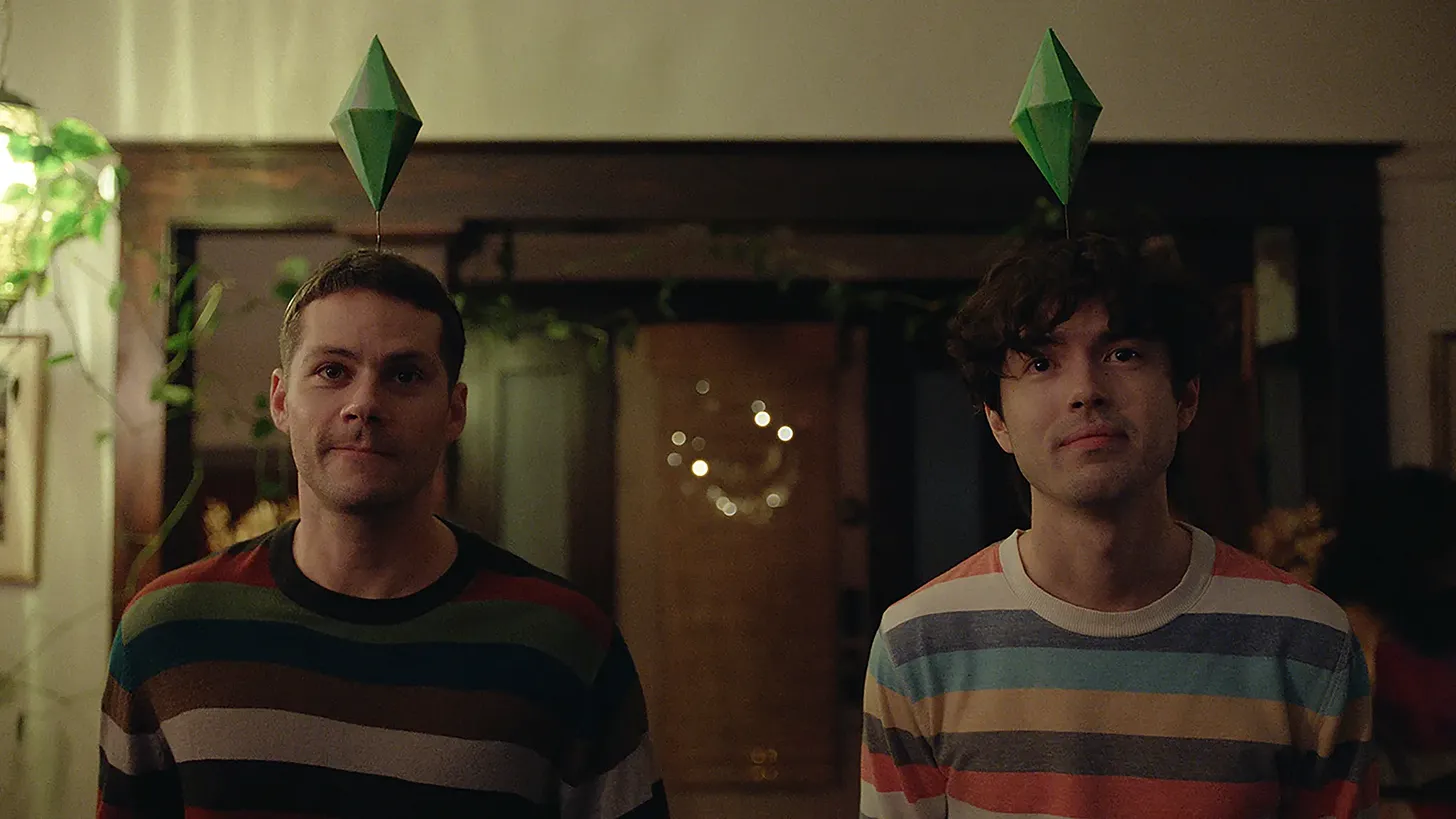
Twinless is the sort of movie that feels synthesized in a lab for me to love it. James Sweeney’s award-winning comedy tells the story of Roman (Dylan O’Brien), a listless thirtysomething who moves to Portland after the death of his twin brother Rocky (also O’Brien). Roman is straight, emotionally stifled, and very much the product of his upbringing. He’s never left his small Idaho hometown, and it shows. This stands in contrast to his charismatic, gay sibling, who packed his bags for the city as a teenager and never looked back. Splitting the difference is Dennis (Sweeney), the introverted, witty, cynical bookworm Roman meets in a support group aimed at grieving former twins. Dennis is also gay, which is a detail Roman sees as an opportunity. In their unlikely friendship, each can serve as an avatar for the twin the other one has lost: a chance to build retroactive understanding, settle unresolved disputes. I’m dancing around the bulk of the plot because I think the less you know, the better. Suffice it to say that as a straight, cis twin with a queer sibling living in Portland, I was hooked from the setup alone. This is a film which rests almost entirely on its performances, and fortunately, both leads deliver. O’Brien gives the performance(s) of his career, demonstrating remarkable range and sensitivity in two wildly different roles. Sweeney, on the other hand, needs to function as a bit of an enigma, and he deftly holds together a plot that could have collapsed in lesser hands. Even if the narrative takes a few turns I found distracting and unnecessary, their earnestness won me over just the same. -Stephen David Miller
Should you watch it? Yes, if you want to see Dylan O’Brien take a remarkable step up in his career and don’t mind a few head-scratching story beats.
Zodiac Killer Project
Charlie Shackleton has become an expert at spite-based filmmaking. With his 10-hour documentary Paint Drying, he tried to demonstrate the unfairness of the British Board of Film Classification’s requirement that every film be rated by that organization and pay a per-minute fee in order to do so. With Zodiac Killer Project, Shackleton tried to make a film based on a book about the hunt for the Zodiac Killer, only the rights fell through so what Shackleton has done instead is make a movie about the movie he would’ve made. Zodiac Killer Project is not super interesting cinematically, consisting mostly of average B-roll with Shackleton’s droll and self-amused voiceover. But what it lacks in production value in makes up for with some trenchant commentary on the tropes that True Crime shows/films use, and how much of what we see on screen is manufactured to manipulate us. It’s pretty rich for someone to critique a genre they would have made an entry in were it not for a rights issue, but despite the film’s extremely smug tone, the insights within are still real.
Should you watch it? Yes, especially if you’re a True Crime aficionado. -David Chen
